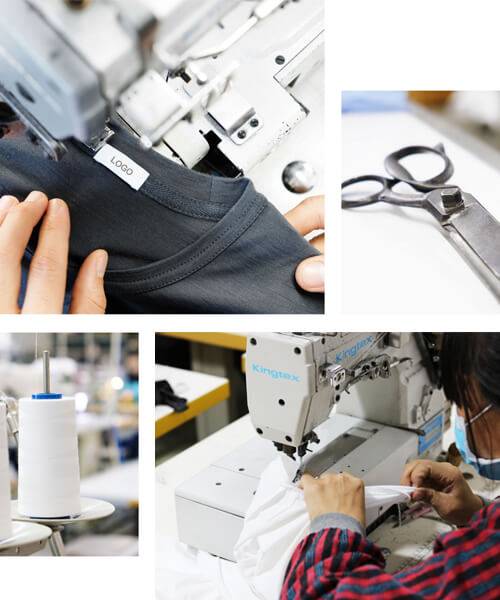International Edition of the Ultimate Guide to Konveksi Kaos for Global Brands begins with an in-depth exploration of what konveksi kaos is and why it has become a cornerstone in the global fashion industry. Konveksi kaos, or t-shirt manufacturing, refers to the process of producing custom-made t-shirts tailored to specific brand requirements. This sector has gained immense popularity due to its ability to provide cost-effective, high-quality, and scalable solutions for businesses aiming to expand their reach across international markets. As global brands seek to maintain consistency in their branding while adapting to local preferences, konveksi kaos offers a flexible and efficient way to meet these demands.
The rise of e-commerce and direct-to-consumer models has further fueled the demand for konveksi kaos. Companies can now easily collaborate with manufacturers in countries like Indonesia, where the production costs are significantly lower than in Western nations. This allows brands to offer competitive pricing without compromising on quality. Moreover, the integration of digital tools such as 3D design software and automated cutting machines has streamlined the production process, making it faster and more precise. These technological advancements have not only improved efficiency but also enabled brands to experiment with unique designs and limited-edition collections that resonate with diverse consumer bases.
Key Factors to Consider When Choosing a Konveksi Kaos Partner
Selecting the right konveksi kaos partner is crucial for the success of any global brand. One of the most important factors to consider is the manufacturer’s experience and reputation. A reliable partner should have a proven track record of delivering high-quality products on time. Brands should look for manufacturers that have worked with other international clients and can provide references or case studies. Additionally, it is essential to assess the manufacturer’s capabilities in terms of materials, printing techniques, and customization options.
Another critical aspect is the manufacturer’s compliance with international standards and certifications. For instance, brands must ensure that the konveksi kaos provider adheres to environmental and labor regulations, especially if they are targeting eco-conscious consumers. Certifications such as ISO 9001 for quality management and GOTS (Global Organic Textile Standard) for organic cotton can add significant value to a brand’s sustainability claims. Furthermore, understanding the manufacturer’s lead times and minimum order quantities is vital for effective supply chain planning.
The Role of Communication in Global T-Shirt Manufacturing
Effective communication is the backbone of successful collaborations between global brands and konveksi kaos manufacturers. Language barriers, cultural differences, and time zone disparities can create challenges if not managed properly. To mitigate these issues, brands should establish clear communication channels and designate a point of contact within the manufacturing team. Regular meetings, detailed product specifications, and real-time updates can help prevent misunderstandings and ensure that the final product meets the brand’s expectations.
Moreover, leveraging technology such as video calls, project management platforms, and cloud-based design tools can enhance transparency and collaboration. These tools allow brands to review prototypes, approve designs, and monitor production progress remotely. By investing in robust communication strategies, brands can build trust with their konveksi kaos partners and foster long-term relationships that benefit both parties.
Customization Options and Market Adaptation
One of the greatest advantages of konveksi kaos is the ability to customize t-shirts according to specific brand requirements. From fabric types and colors to print methods and garment fit, manufacturers offer a wide range of options to suit different market segments. For example, a brand targeting the European market may prefer organic cotton and eco-friendly dyes, while a brand focusing on the Asian market might prioritize moisture-wicking fabrics and vibrant color schemes.
Additionally, konveksi kaos allows brands to adapt their designs to local trends and cultural preferences. This is particularly important when entering new markets, as a one-size-fits-all approach may not resonate with consumers. By working closely with manufacturers, brands can create region-specific collections that align with local tastes and increase their chances of success.
Challenges and Solutions in International T-Shirt Production
Despite its many benefits, international t-shirt production comes with its own set of challenges. Shipping delays, customs issues, and fluctuating material costs can disrupt the supply chain and impact delivery timelines. To address these challenges, brands should work with manufacturers that have established logistics networks and can provide timely shipping solutions. Diversifying suppliers and maintaining buffer stock can also help mitigate risks associated with supply chain disruptions.
Another common challenge is ensuring consistent quality across multiple production runs. To overcome this, brands should conduct regular quality inspections and implement strict quality control protocols. Working with manufacturers that use advanced testing equipment and have certified quality assurance teams can further minimize the risk of defects and inconsistencies.
Future Trends in Konveksi Kaos for Global Brands
As the global fashion industry continues to evolve, konveksi kaos is expected to play an even more significant role in shaping the future of sustainable and tech-driven manufacturing. Innovations such as AI-powered design tools, blockchain for supply chain transparency, and 3D knitting machines are set to revolutionize the way t-shirts are produced. These advancements will not only improve efficiency but also enable brands to create more personalized and environmentally friendly products.
Furthermore, the growing emphasis on sustainability is driving demand for konveksi kaos providers that prioritize ethical practices and reduce their carbon footprint. Brands that embrace these values will be better positioned to meet the expectations of modern consumers who are increasingly conscious of the environmental and social impact of their purchases. By staying ahead of these trends, global brands can leverage konveksi kaos as a strategic advantage in the competitive world of fashion.
